About the Guide
Indigenous people have collected and interpreted data for millennia. Our Nations and communities have always had scientists. We recognize research, data, and evaluation as Indigenous values. A lack of understanding about Native people and communities have resulted in decades of racial misclassification and misrepresentation, worsening many of the health disparities we face today.
UIHI and our partners are dedicated to decolonizing data, recognizing the dire need for data sovereignty. We are reclaiming our Indigenous data practices to ensure that partners, providers, policymakers, and health advocates have access to information that will help, not hurt, our communities.
Decolonizing data is about reclaiming our traditional data practices to give the necessary context to tell complete stories. We know that data is not just numbers and statistics. Native data represents Native people.
You can’t erase us, even if you try.
What you can do
Within this toolkit, you will find sample content and messaging around decolonizing data to use in your communications and outreach efforts.
This messaging is intended to act as a guide, but we encourage you to make it your own. Feel free to copy/paste the content and tailor it to best fit your target audiences.
Share this toolkit with your colleagues who manage your website, social media, and email outreach.
The Diabetes Audit does not reflect changes seen in individual patients but in the current health status of urban American Indians and Alaska Natives in all participating Urban Indian Organizations (UIOs). Our work seeks to highlight the opportunities and acknowledge the challenges for urban Indians who currently live with, manage, treat, prevent, and overcome diabetes. This work is made possible through the Special Diabetes Program for Indians (SDPI).
Resources Included
- Decolonize Data Guidebook
- Social Media Posts and Graphics
- Sample Email Content
- Sample Blog Post
Decolonize Data Guidebook
Without accurate data, our communities have struggled to appropriately represent our strengths and colonially created disparities in addition to limiting access to resources.
Now we are demanding Indigenous Data Sovereignty—the right of Indigenous Peoples and nations to govern data about their peoples, lands, and resources.
Download this guidebook to learn more about the Decolonizing Data.
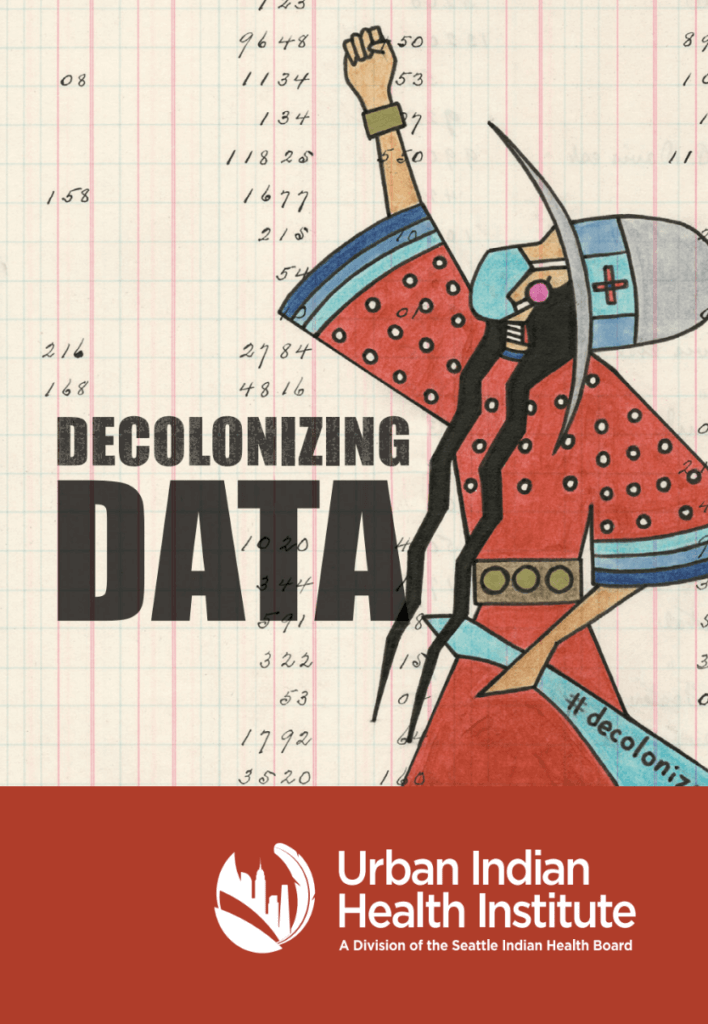
Decolonize Data Social Media Posts
Post 1
Harmful colonial practices are embedded in western data systems. For decades, Indigenous people have been misidentified, misclassified, or erased through data genocide.
No longer. We are decolonizing data by reclaiming our traditional practices, dismantling harmful western methodologies and narratives, and uplifting the power and resiliency of Native communities. Join us.
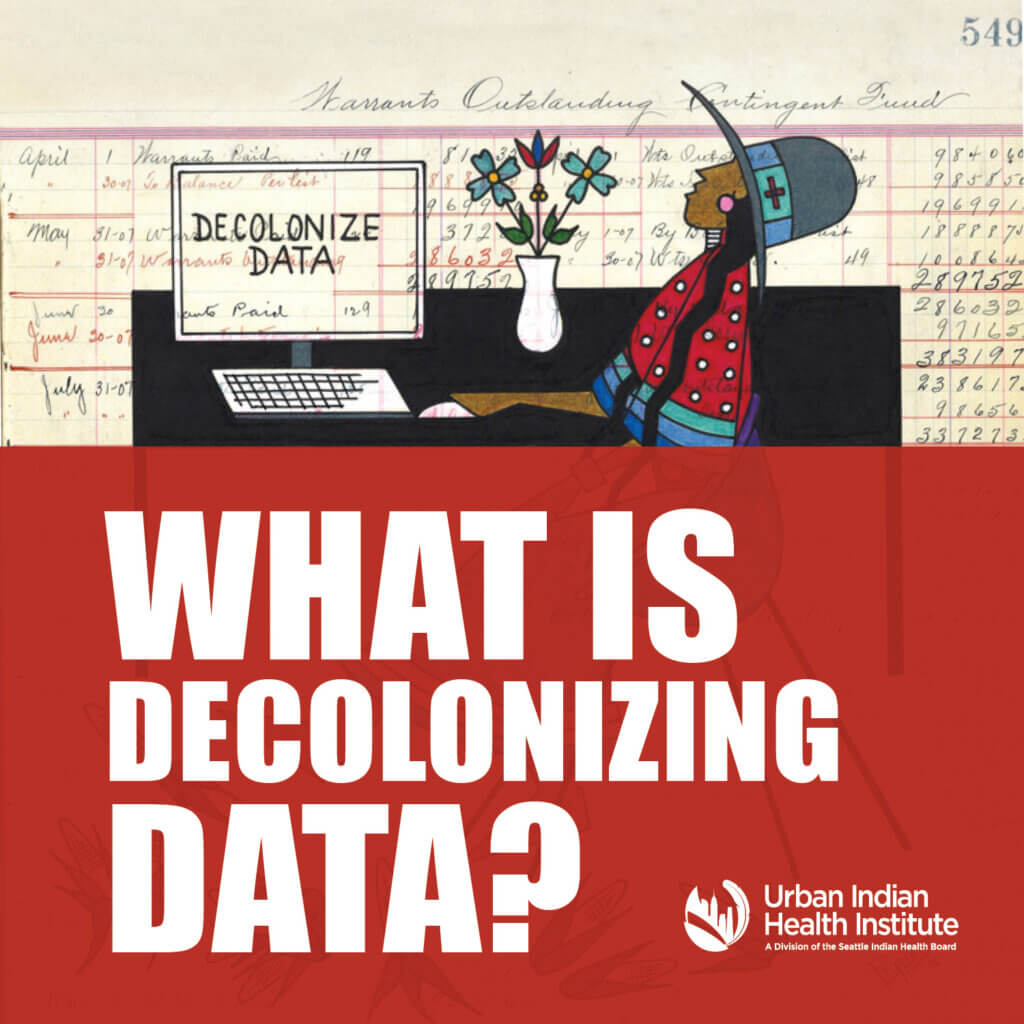
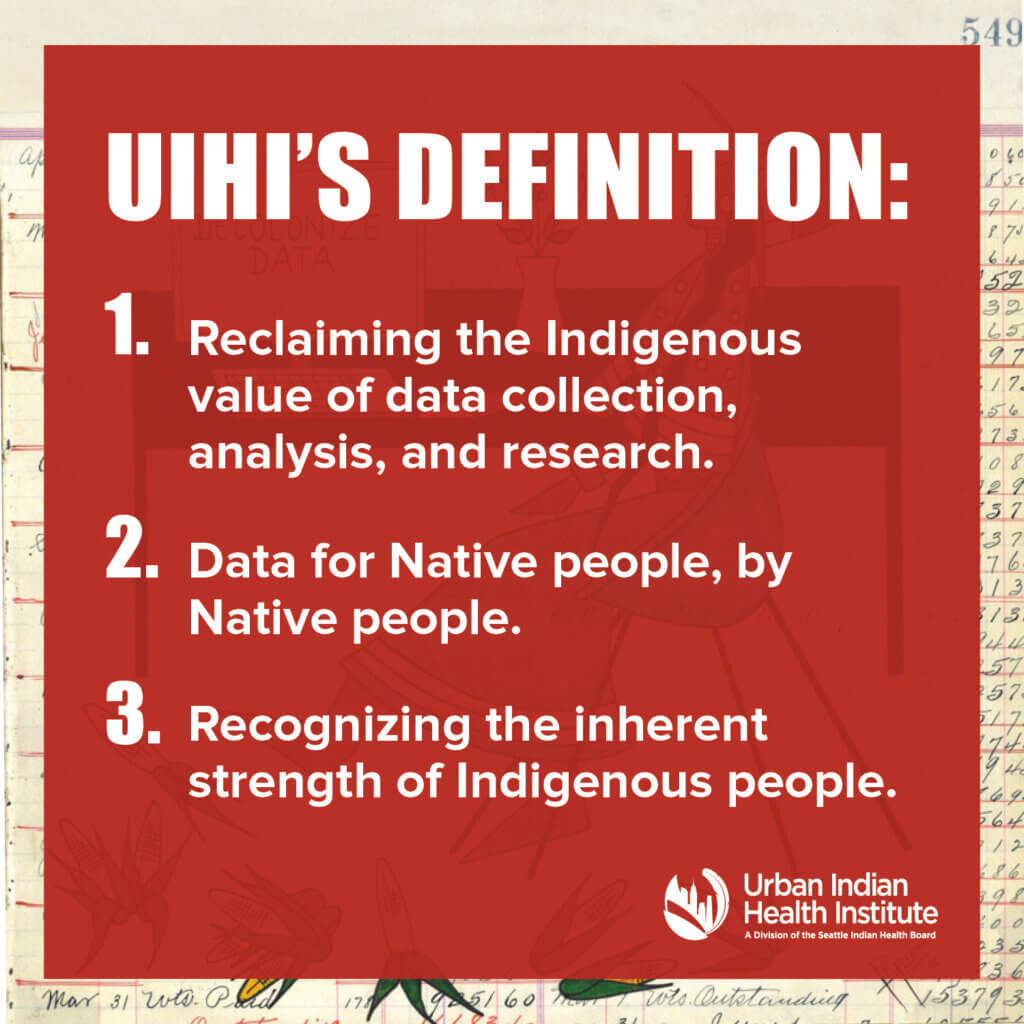
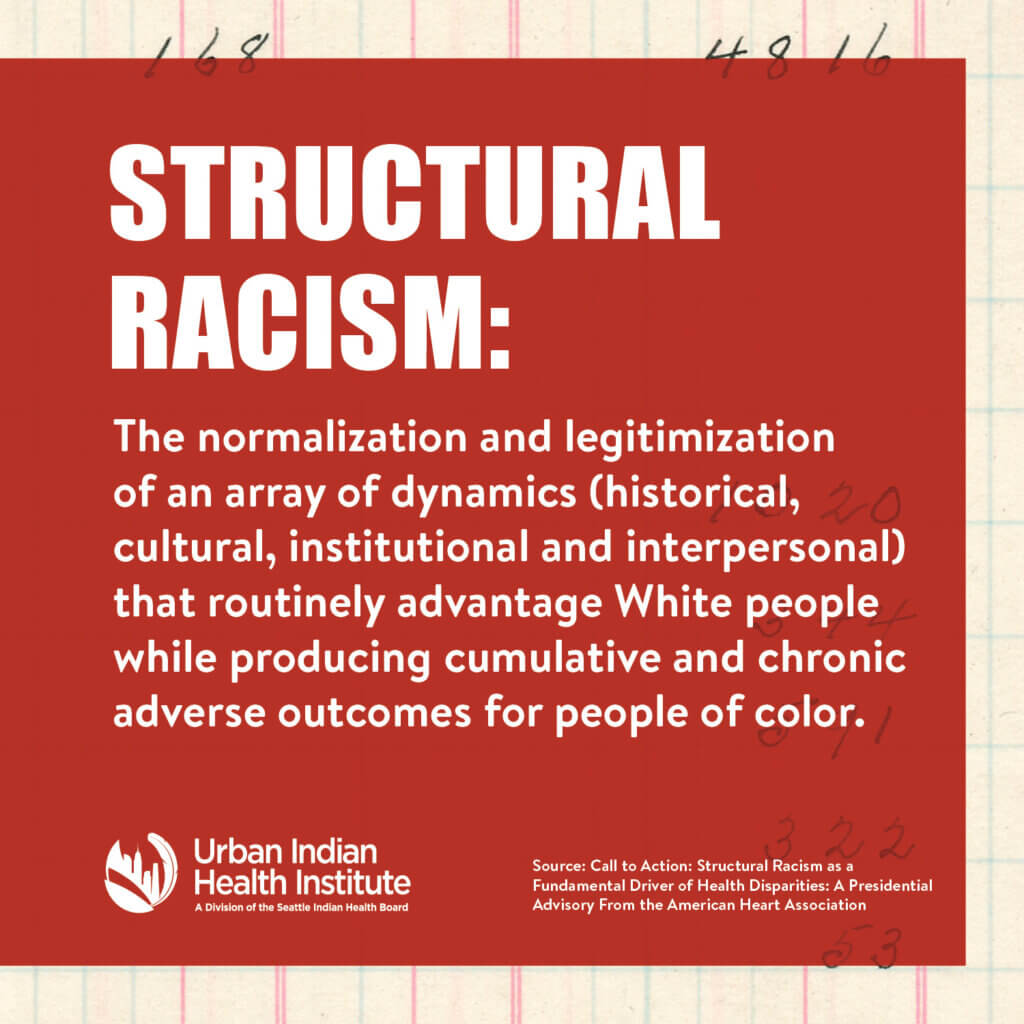
Post 2
Indigenous people are the original data stewards. Despite centuries of oppression, data collection and analysis remains an integral aspect of Native cultures. We know that data is never just numbers: It represents our people, our stories. We are reclaiming our traditional practices. We are decolonizing data. Join the movement!
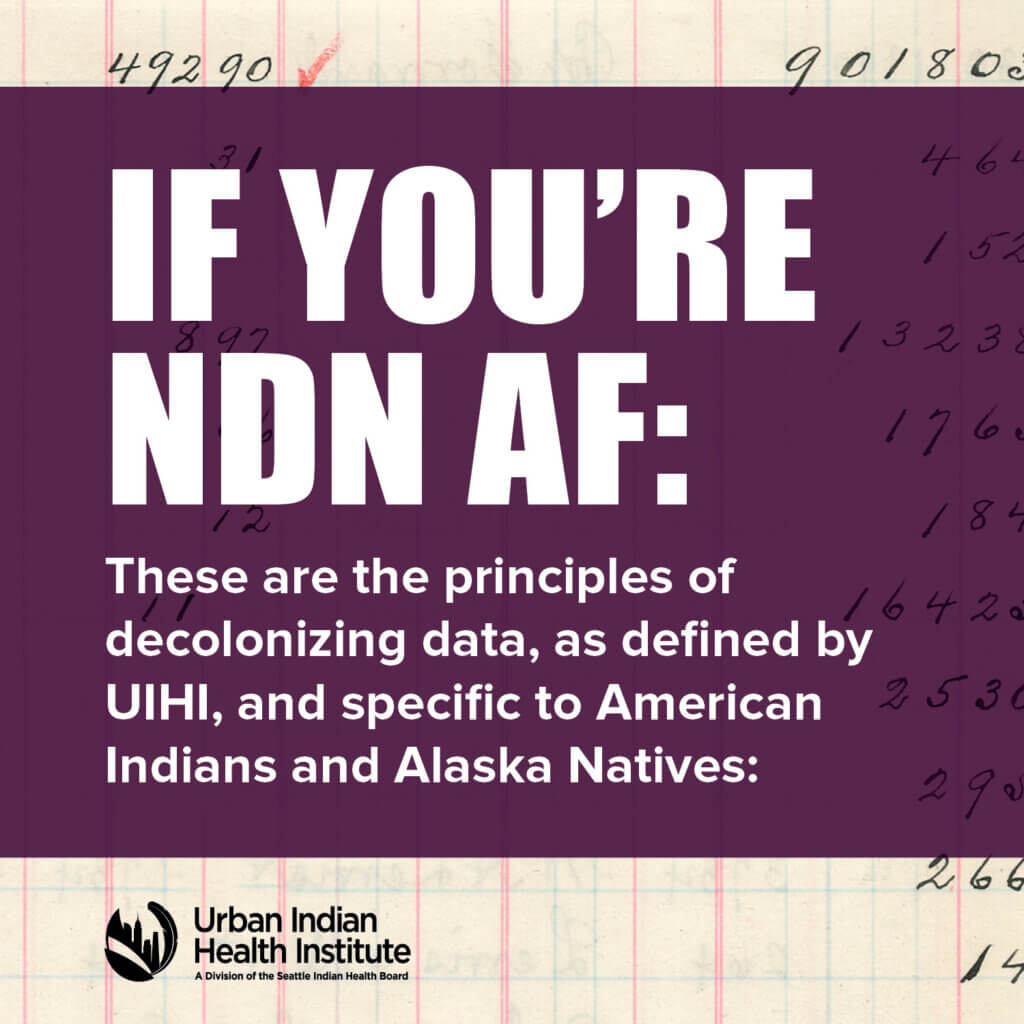
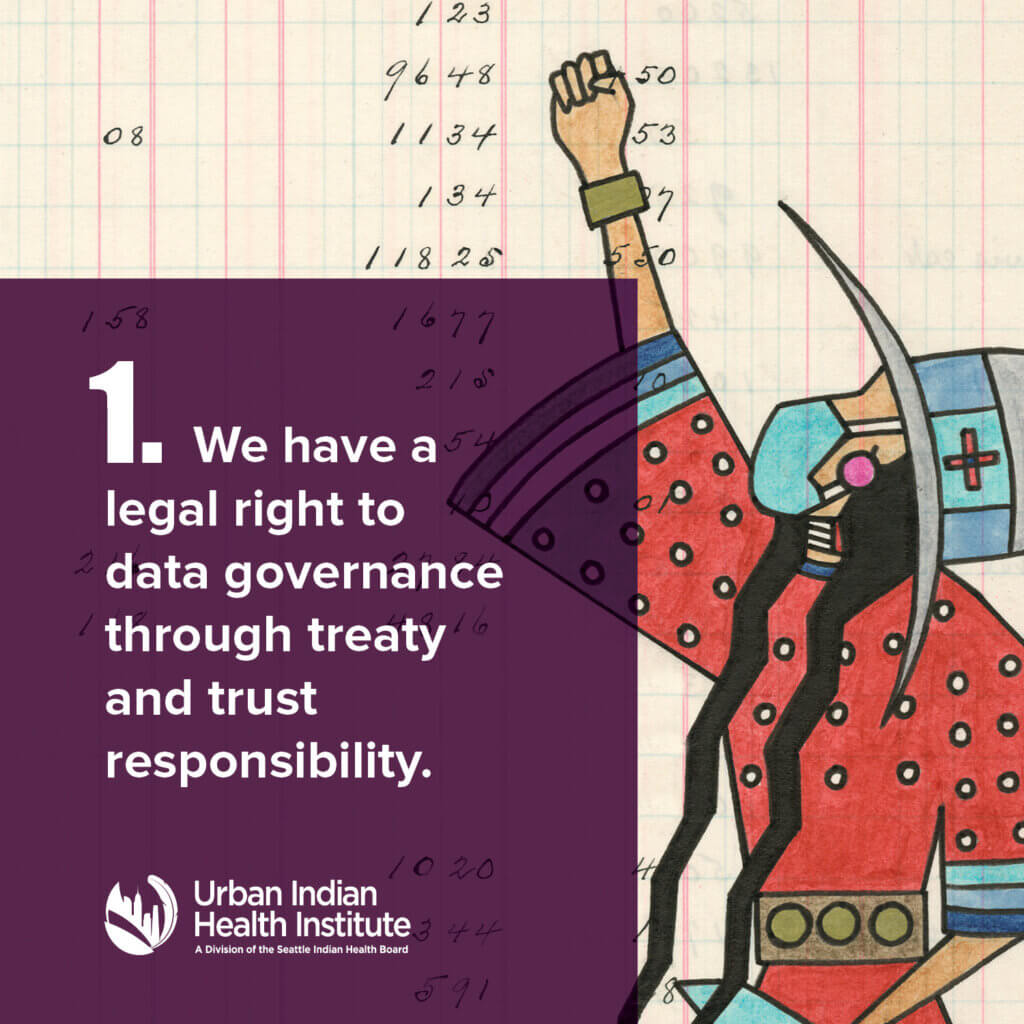
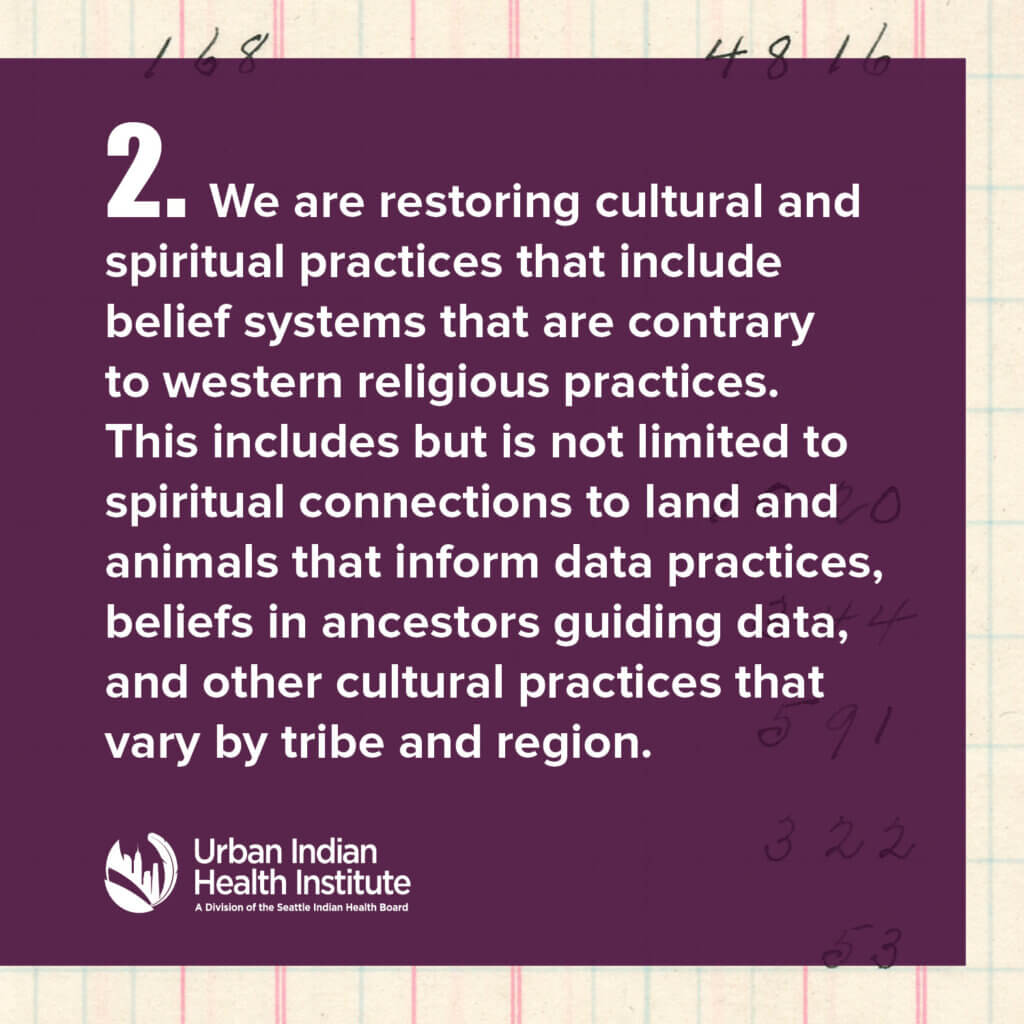
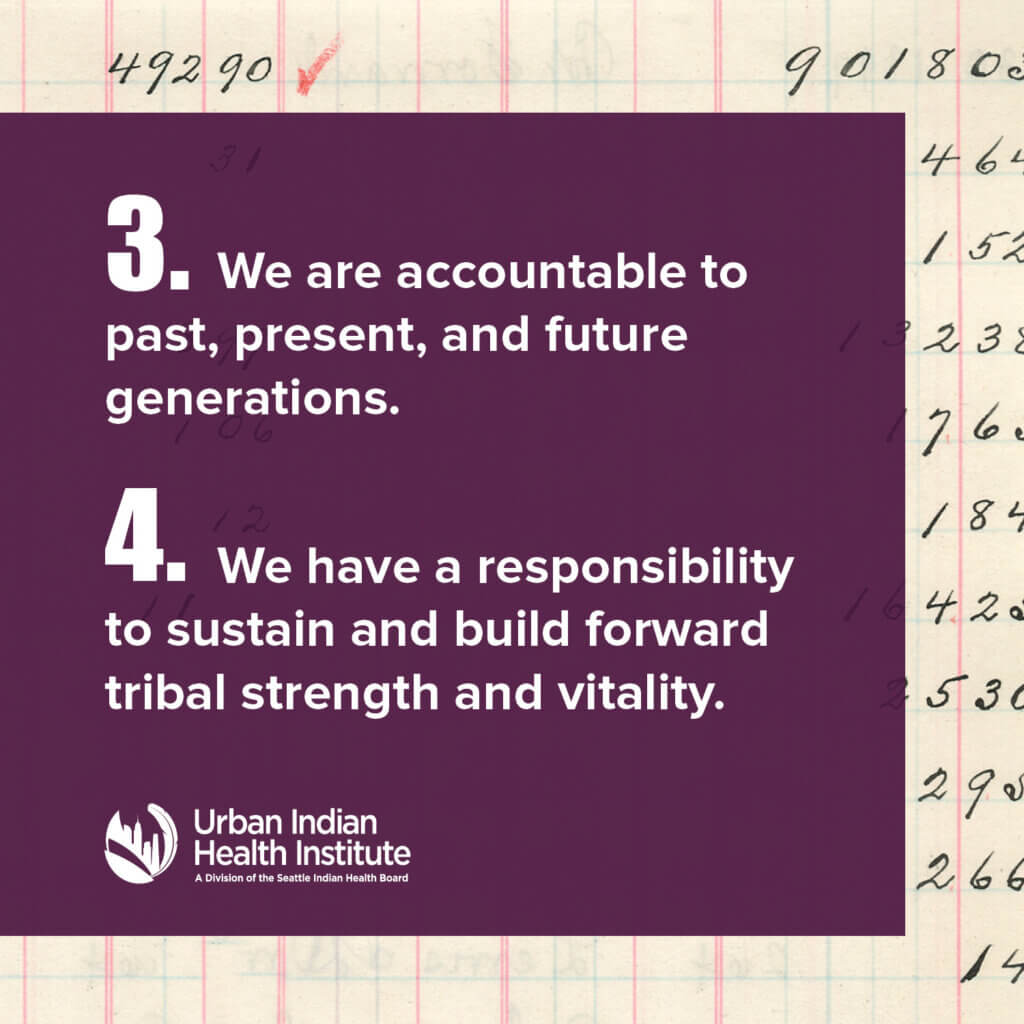
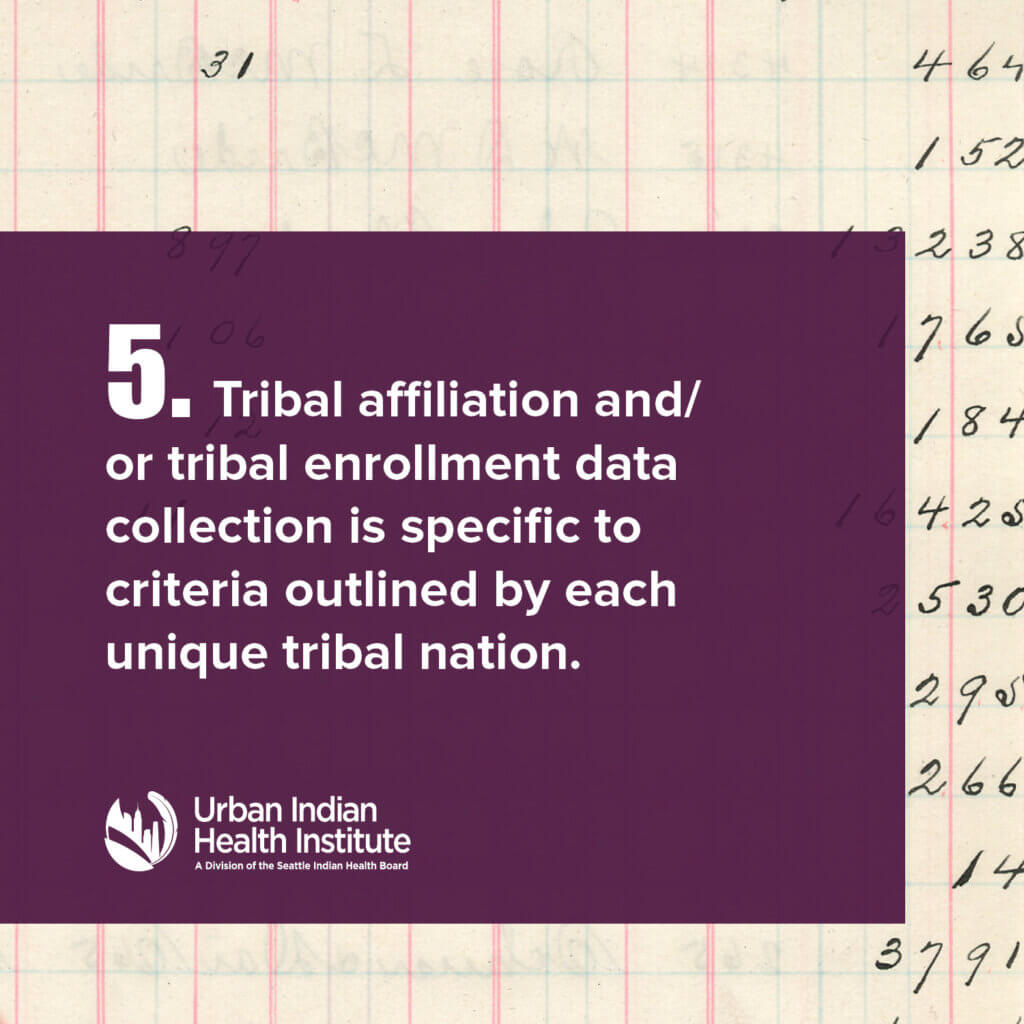
Post 3
For too long, Indigenous data has been used to promote a deficit narrative while failing to acknowledge the reason for current Native health outcomes. Indigenous data leaders and our allies are actively reclaiming Native data. We can all contribute to dismantling harmful systems of oppression. Be a true ally. Support data collected by Native people, for Native people.
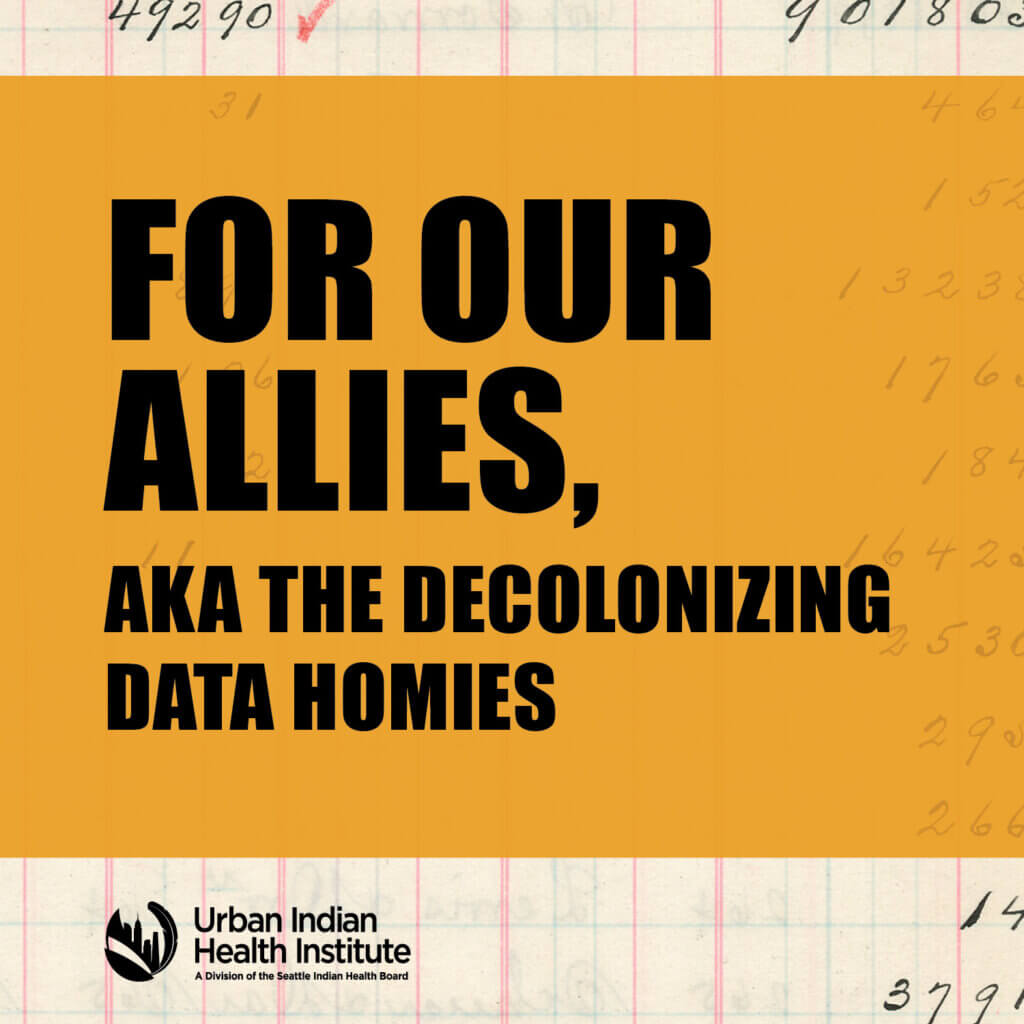
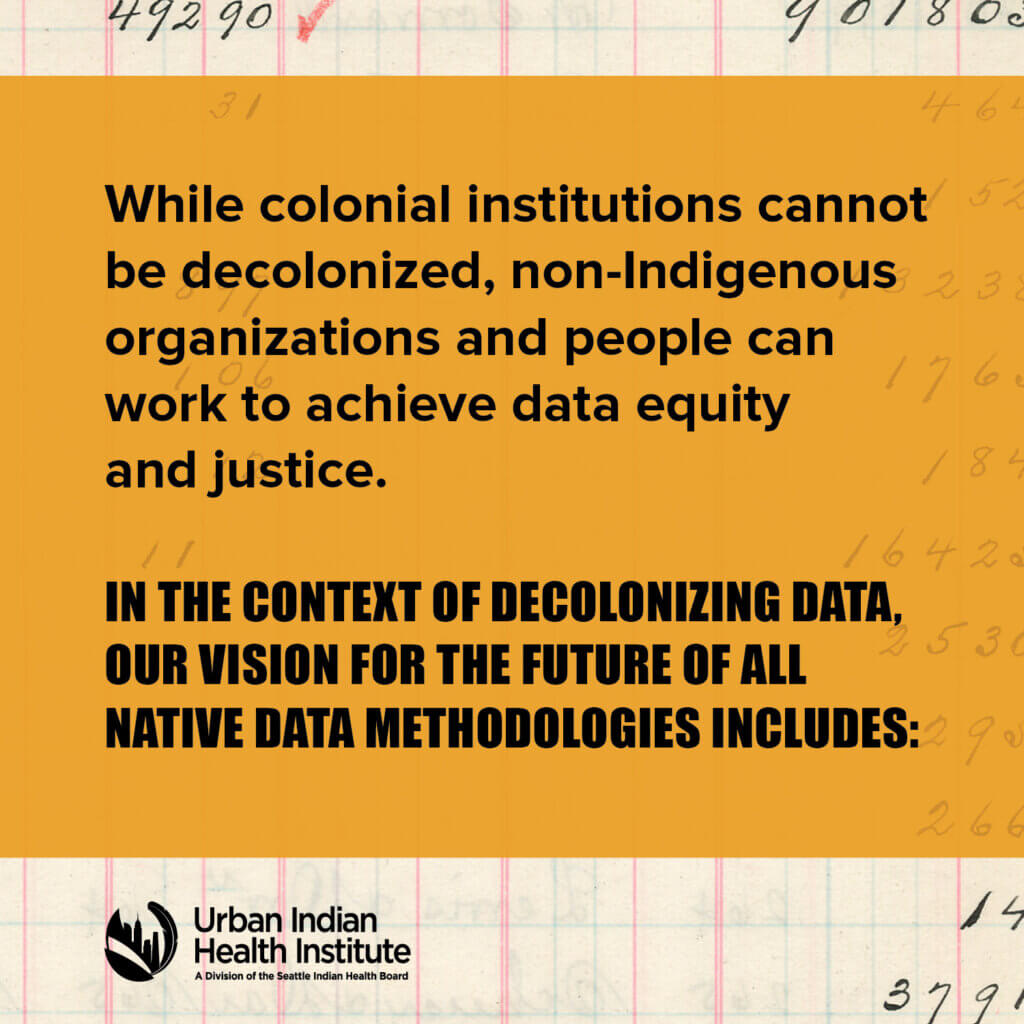
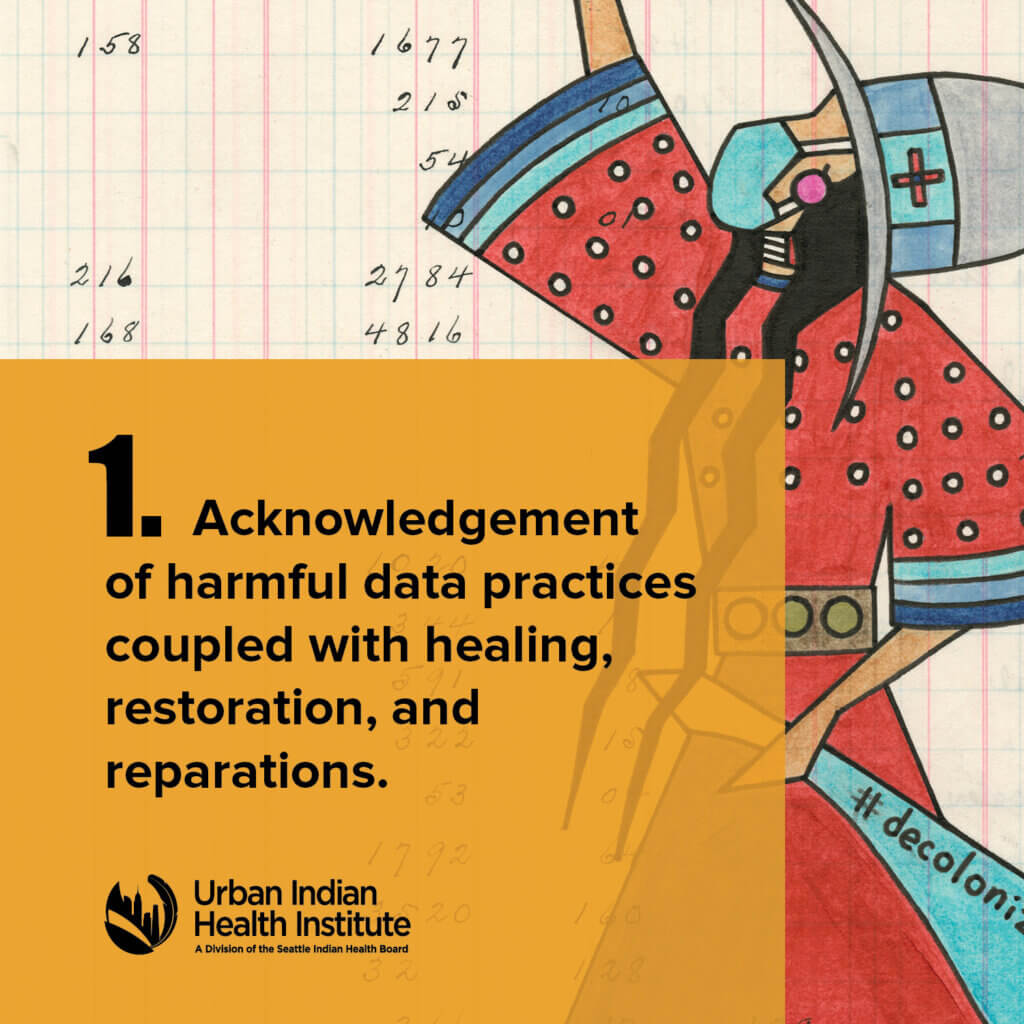
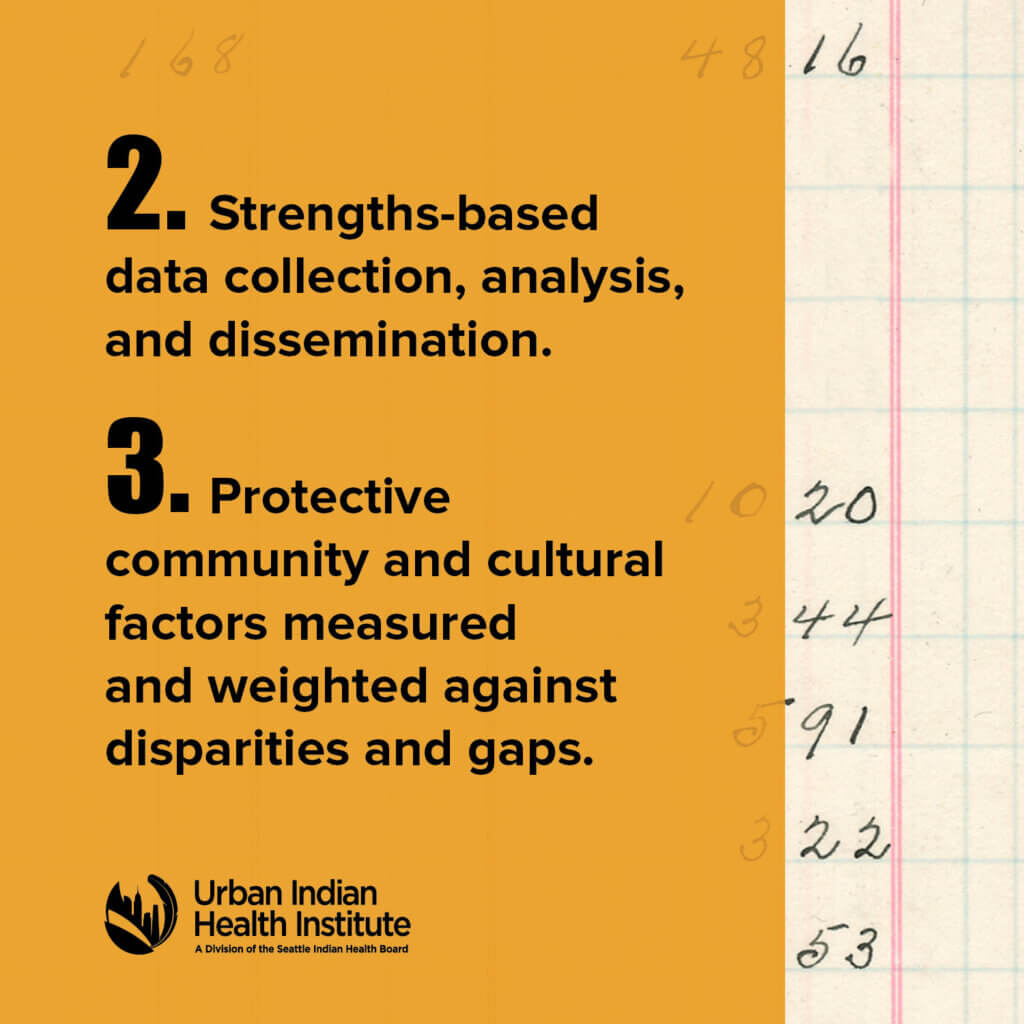
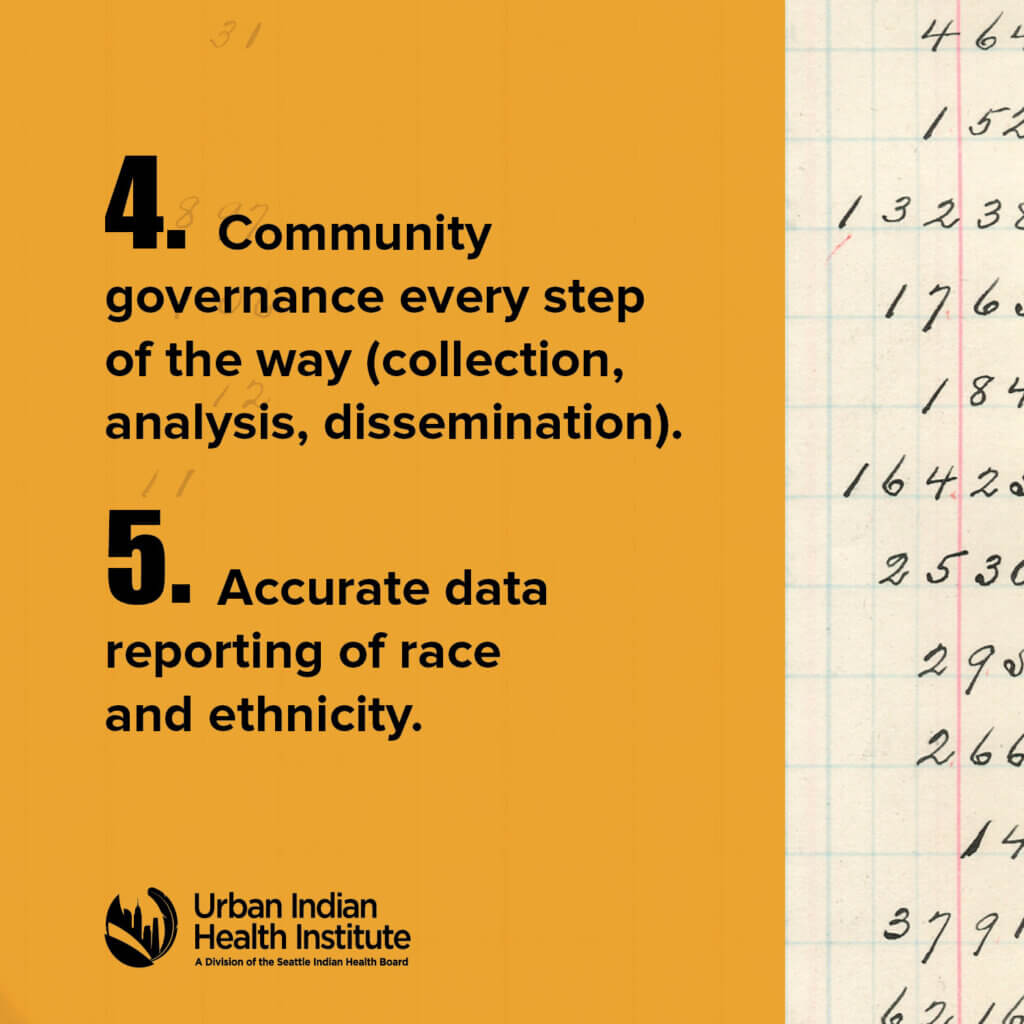
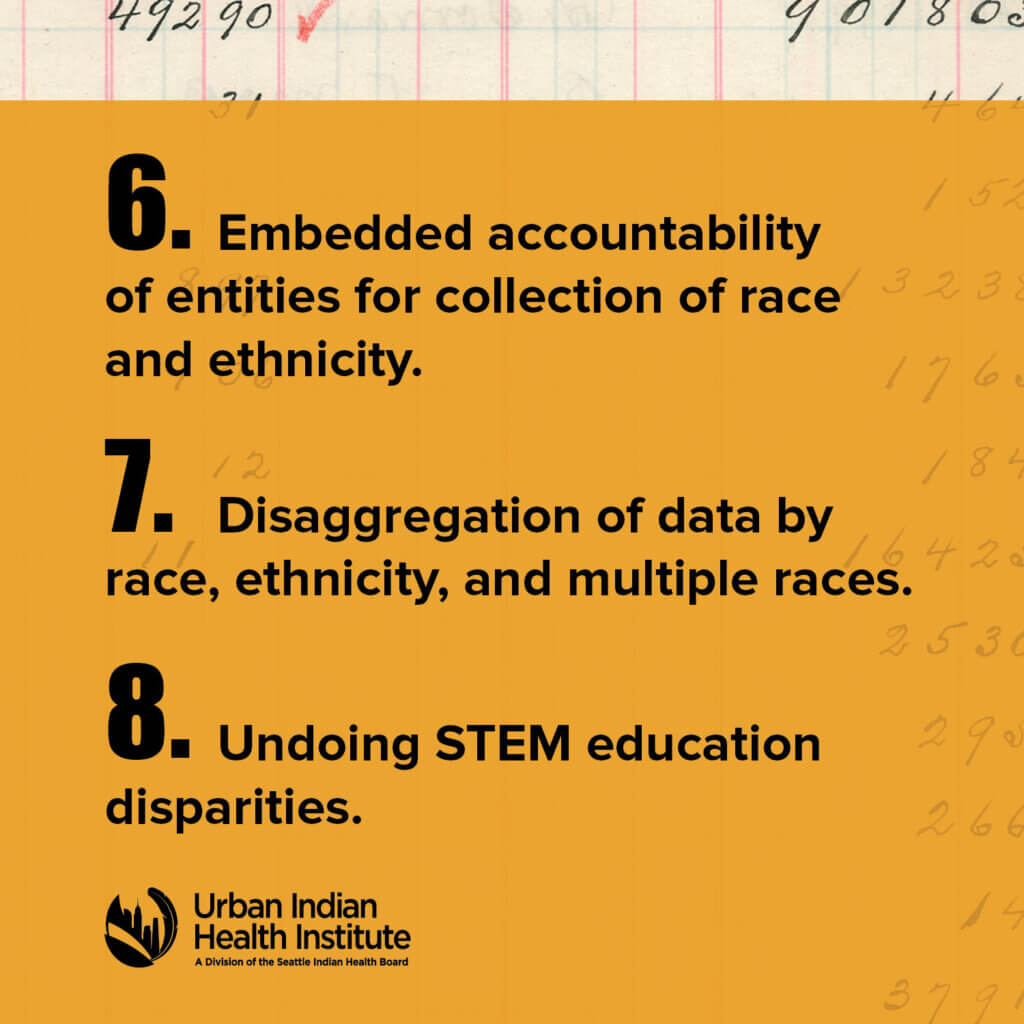
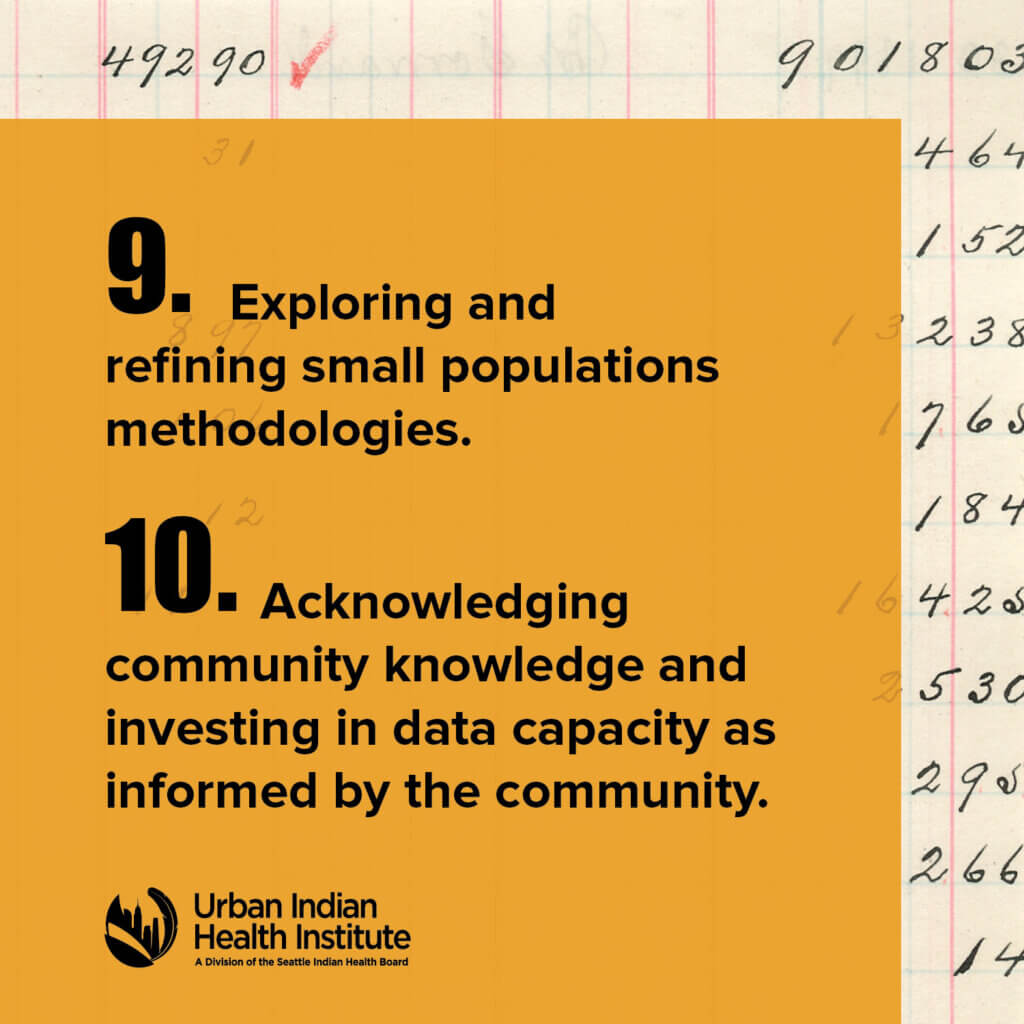
Post 4
Accurate data tells accurate stories. Indigenous peoples know that data represents more than just numbers. Data represents people. That’s why we are working to reclaim Indigenous data. #DecolonizeData
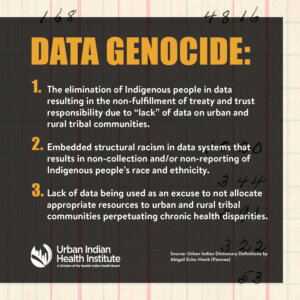
Email Template
Subject line: Join us in Decolonizing Data today!
Dear NAME,
Accurate data tells accurate stories. For too long, western data practices have misidentified and misclassified Native people. That’s why we’re partnering with the Urban Indian Health Institute to decolonize data.
Decolonizing data is presenting our data with the necessary context to tell complete stories. We know that data is not just numbers and statistics. Native data represents Native people.
With these harmful practices impacting everything from adequate healthcare funding to ending the Missing and Murdered Indigenous Women crisis, we are one of many organizations committed to decolonizing data.
Accurate data is integral to addressing long-running health disparities, and we have the experience and expertise to lead these efforts.
We are decolonizing data by reclaiming Native data collection, analysis, and research. We are rejecting deficit-based narratives. We are collecting data for Native people, by Native people. We are recognizing and honoring the inherent strength of Indigenous people.
You can find out more about our work here: Visit the Urban Indian Health Institute site to learn more about Decolonizing Data.
Blog/Website Post
Decolonizing Data for Native People, by Native People
Indigenous people are the original data stewards. We have always gathered, analyzed, and shared data to ensure the well-being of our nations. Native scientific methodologies sustained thriving communities for millennia. We recognized that data is never just numbers. It’s people. Our people. Our stories.
Indigenous communities have faced high rates of data misclassification. Harmful methodologies often misrepresent and misclassify Native people, making it harder to address significant health inequities.
Western data practices have routinely misidentified and misclassified Native people, contributing to serious health inequities. Data often fails to accurately reflect our communities in local, state, and national reports, impacting health-related funding, policies, and practices. Our data is often presented through a deficit-based lens, failing to acknowledge outside factors that play a major role in how we live and how we die.
Numerous factors have contributed to better overall health outcomes for non-Hispanic white populations, and they are often used as the benchmark for comparison in Native health data.
Despite all these obstacles, Indigenous researchers, advocates, and public health leaders are actively reclaiming our data practices. Grounded in cultural values that include respect, reciprocity, and ceremony, we are revolutionizing how Native people are represented.
We are decolonizing data by reclaiming data collection, analysis, and research as Indigenous values. We are disrupting harmful systems and embracing strengths-based narratives. We are collecting data for Native people, by Native people. We are recognizing and honoring the inherent strength of Indigenous people.
Join us.
